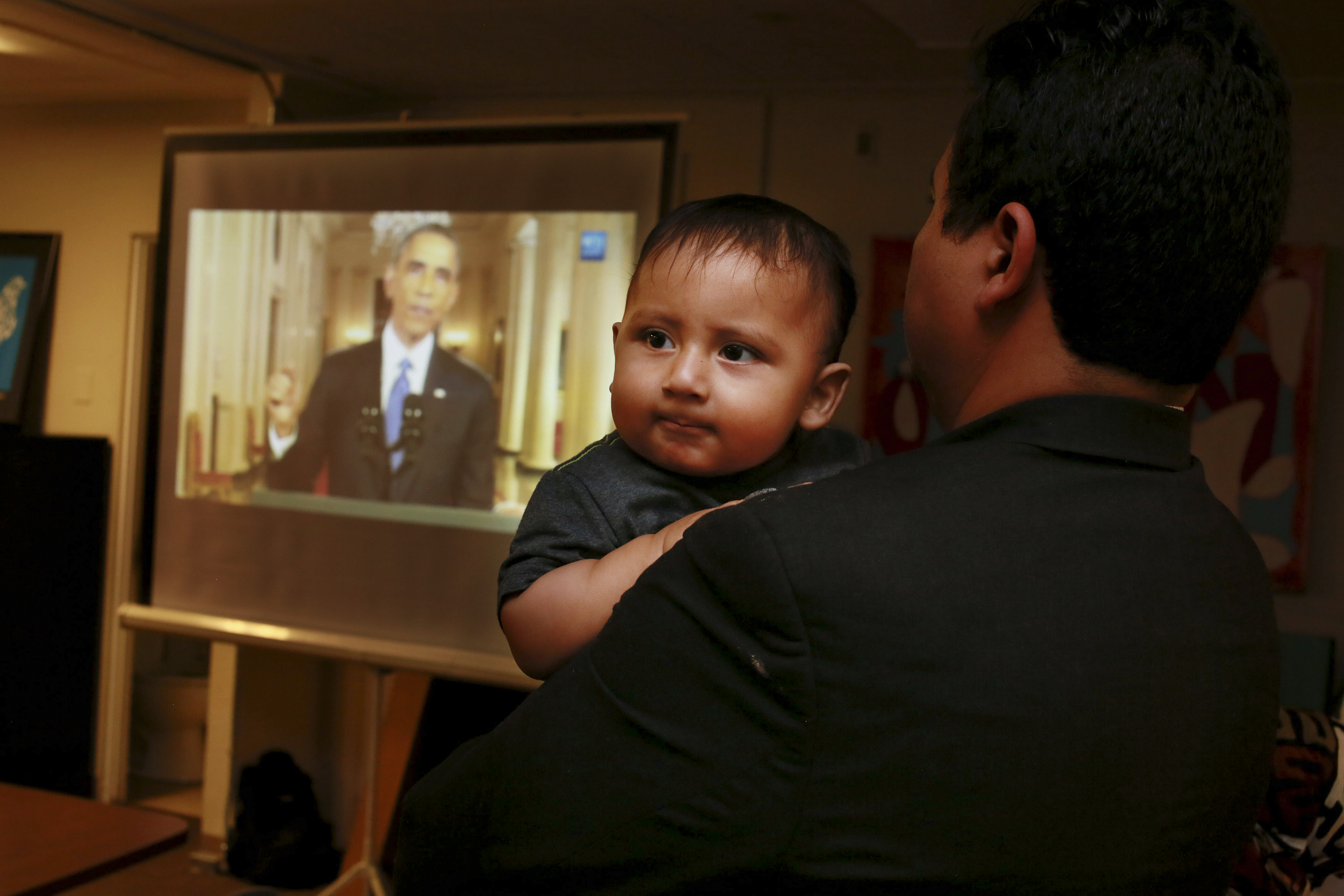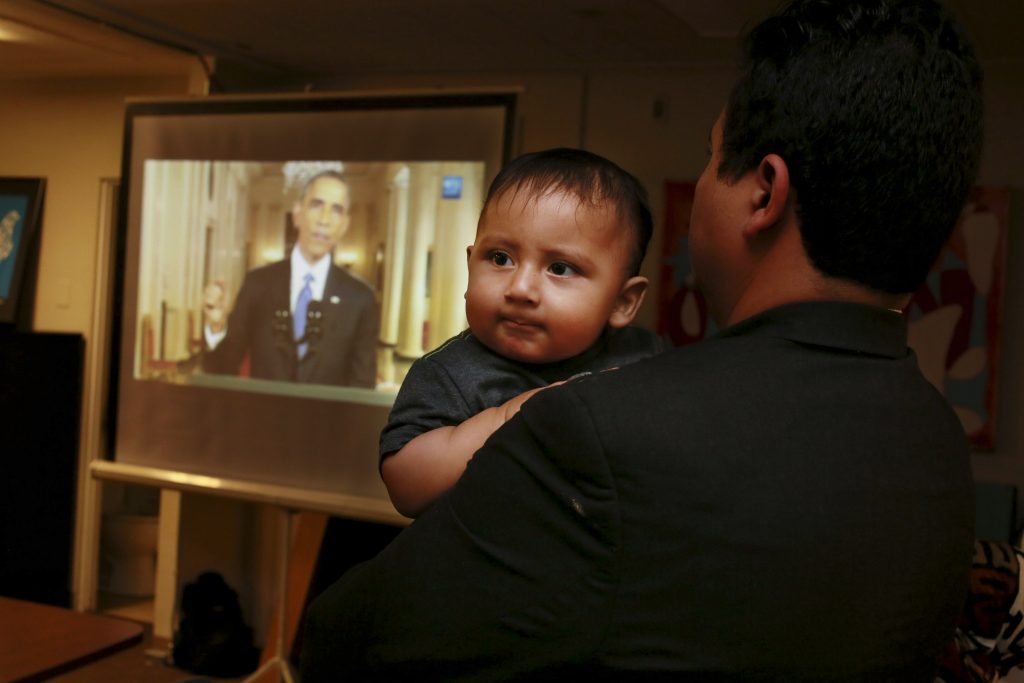
Future of US Economy Depends on Getting Immigration Right
After months – and even years – of anticipation, President Barack Obama has provided an imperfect solution for nearly half the country’s unauthorized immigrants. The bold decision to wield his executive authority will extend legal status to up to 5 million unauthorized immigrants; make it easier for high-skilled workers to stay; and strengthen security along the border with Mexico. It has been a long time coming. His actions will affect many more unauthorized immigrants than even President Reagan’s 1986 Immigration Reform and Control Act.
The president has provided a temporary solution to a permanent problem. That permanent problem is our broken immigration system.
Obama’s action addresses the lawlessness that currently exists because of our broken system. Our Immigration and Customs Enforcement can now stop going after fathers and mothers and instead focus its energy on the serious criminals and other real threats to our country.
We have waited for more than two years since the president’s last major action on immigration: Deferred Action for Childhood Arrivals (DACA). Using executive authority, this program offers immediate deportation relief and work authorization for an estimated 1.2 million unauthorized immigrants who arrived as children. Obama then put the ball in Congress’ court. The Senate passed a bipartisan bill in June 2013, but that piece of legislation went nowhere in the House of Representatives.
The debate over immigration in Washington has fixated on the 11 million undocumented immigrants. Their status must be solved; but these 11 million are just a part of a much larger picture.
Getting immigration right
It is imperative to get immigration right, if for no other reason than this: The future of the US economy is at stake.
The question that any president, present or future, and Congress will have to address is: What can we do to attract the workers our economy needs? We didn’t have to worry so much about this twenty years ago because the US was the only land of opportunity. Today we are competing against China, parts of Latin America, but most of all with India.
Other questions that will demand answers are: How do we create an immigration system that responds to the demands of labor? How do we find an equilibrium between the demand in this country and the supply so that we can make sure our economy is growing?
We are a fast-aging society and we need immigrants to pay Social Security for retiring baby boomers as well as to buy their homes. We also need immigrants as health care workers, engineers, teachers, and to work in service industries.
A long time coming
Obama’s decision to circumvent Congress and use his executive action comes after years of expectations that the president will act on immigration. His decision to put off action until after the midterm elections, while paying heed to Democratic senators’ concerns that they could suffer a backlash from voters, was unwise in hindsight. The Democrats received a drubbing in the elections and it’s hard to imagine a worse result for the party.
Immigration, while not a number-one concern of many Americans, has become a political football. It was no coincidence that the president’s speech was scheduled so that the Spanish-language TV network Univision interrupted its coverage of the popular Latin Grammy Awards for a live broadcast. Obama’s action on immigration has put Republicans in a tough spot. They will find it hard to criticize his executive action without hurting their own party’s standing among Latinos.
Yet Obama has not necessarily been a great friend to immigrants. In fact, he is the deporter-in-chief. In 2012, there were a record 400,000 deportations on his watch. Families have been torn apart—parents deported and their kids stuck in foster homes in the US.
What does this mean for Latin America?
The plight of immigrants comes down to human dignity.
Immigration is one of the top issues that divides the United States from our Latin American friends, especially Mexico. These governments are concerned about how we treat their nationals in our country and the lawlessness that our current system breeds. Even if a person is a victim of a crime—a robbery, assault or often domestic abuse—those without documentation are too afraid to go to the police.
The president’s actions will certainly be welcome by countries that struggle to absorb deportees. Our deportation machinery has placed enormous strains on local and national authorities in the receiving countries; for years, busloads of unauthorized immigrants were simply dropped off at the border with Mexico. Coordination has improved but countries are still left struggling with how to reintegrate into their societies law-abiding parents swept up and sent home by immigration authorities.
That will now change. Mexicans represent about half the undocumented population but account for two-thirds of those affected by the president’s actions, according to the Pew Research Center.
Potential for blow back
Republican domination of Congress is going to make it much harder over the next two years for the GOP and the Democratic president to achieve compromise on immigration, or any issue for that matter.
Many Republicans—Sen. Marco Rubio, Jeb Bush and Rep. Mario Diaz-Balart among them—understand the importance of fixing the immigration system. Yet Obama’s action is expected to result in a series of Republican counter punches. Expect the new Congress to spend the better part of next year trying to undo the executive actions; this will now supersede the Affordable Care Act as the new cause célèbre.
Congress, too, could refuse to provide funds for processing the deferred action claims. It could also challenge Obama’s ability to actually have this degree of executive authority. Yet there’s a touch of irony to such criticism from Republicans: Ronald Reagan wielded his executive authority on immigration in the 1980s endearing him to the immigrant community.
There are many unanswered questions at the state level as well. The Republican Governors Association is concerned about the burden on the states. Do states, for example, have to issue drivers’ licenses and in-state tuition to people who have been granted deferred action? In Texas, Governor Rick Perry has talked about bringing a lawsuit against the president. Indiana Governor Mike Pence and Wisconsin Governor Scott Walker have also queued up to threaten legal action.
Thursday night does not mark the end of the battle over immigration. It is just the beginning.
Jason Marczak is deputy director of the Atlantic Council’s Adrienne Arsht Latin America Center.
Image: Christian Ramirez holds his nine-month old son, Diego, while watching President Obama's speech on immigration with other immigrants in San Diego, California. Obama imposed the most sweeping immigration reform in a generation on November 20, easing the threat of deportation for about 4.7 million undocumented immigrants and setting up a clash with Republicans. (Reuters/Sandy Huffaker)
